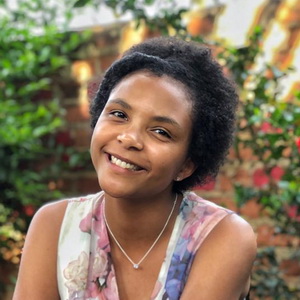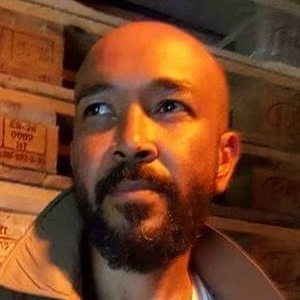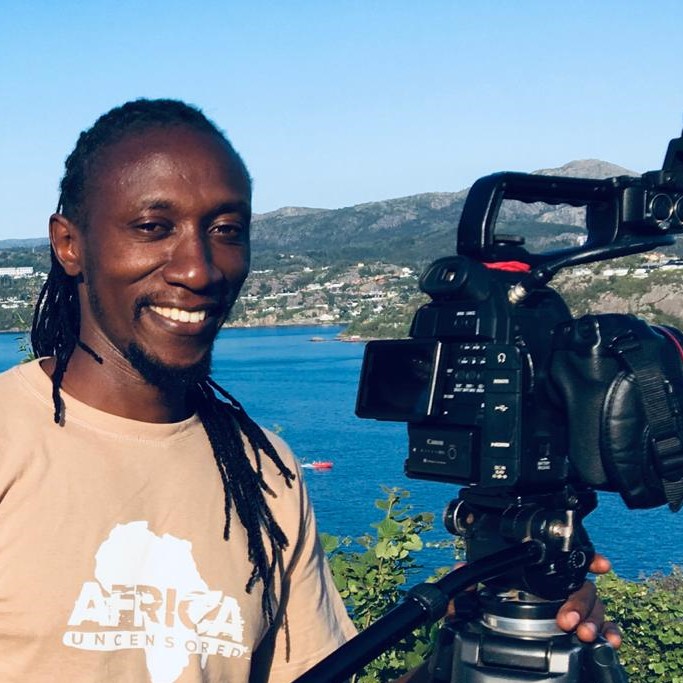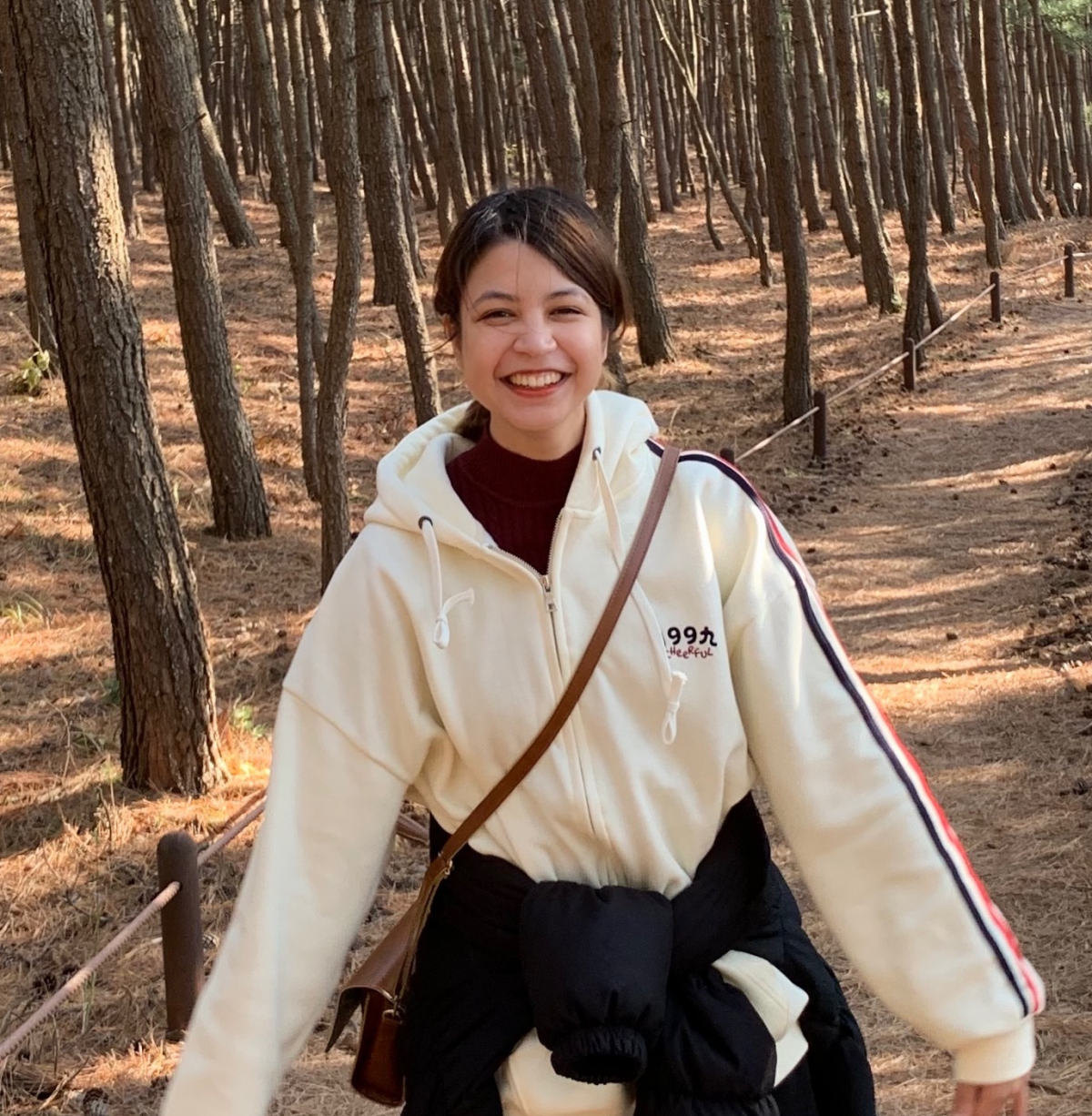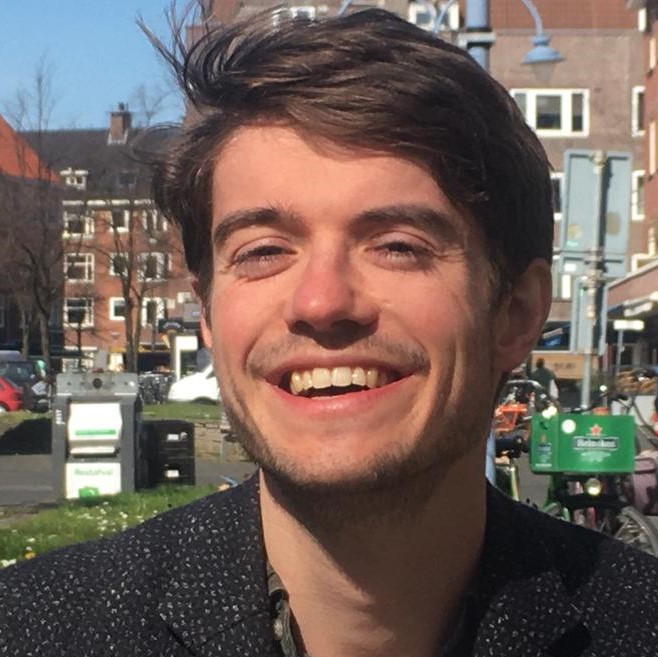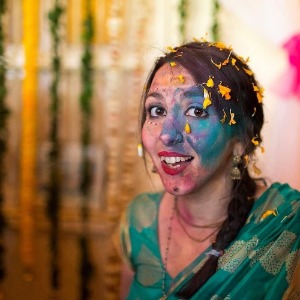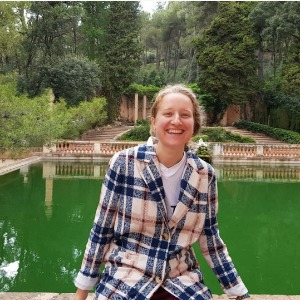À la maison pendant la pandémie: l’opinion d’une afropéenne sur le Covid-19
En tant qu’afropéenne, je crois que la Covid-19 a rendu les inégalités sociales plus évidentes; cela me rappelle les privilèges et les désavantages que j’expérimente dans mes pays.
Uganda, Eastern Africa
Story by Anna Adima. Translated by Stefania Ledda
Published on July 4, 2020.
This story is also available in 


Mes maisons se trouvent en Afrique de l’Est et en Europe. La pandémie de Covid-19 m’a surprise en Ouganda, où je suis en train de réchapper à une stricte quarantaine à l’abri dans la maison familiale . En tant qu’afropéenne, je vois des parallèles frappants entre les inégalités sociales des deux continents. Le Covid-19 a maintenant rendu ces inégalités évidentes et cela me rappelle les privilèges et les désavantages que j'expérimente dans mes pays.
Je discute de la gravité de la pandémie dans ces deux régions du monde avec mes amis et ma famille d’Europe et d’Afrique. Au début, bien que la situation en Europe se fût aggravée et l’Ouganda fût dans une quarantaine rigide avec peu de cas, mes amis allemands s’inquiétaient que je reste en Ouganda, en citant les prédictions de l’OMS sur la dévastation de la Covid-19 en Afrique. [1] Paradoxalement, j’avais peur pour mes amis en Europe alors que le nombre de cas augmentait et que les gouvernements échouaient dans leurs interventions. Au mois de mars, mes amis d’Afrique de l’Est s’accordaient à dire qu’ils se trouvaient dans une meilleure situation que les européens. Maintenant, en juin, les chiffres nous racontent une histoire similaire: l’Ouganda a beaucoup moins de cas que l’Europe (au 19 juin 2020 il y a 755 cas confirmés avec 492 rétablissements et pas de décès [2]) tandis que le Royaume Unis est confronté à un taux important de décès [3]. Les mesures restrictives de quarantaine ont largement assuré la protection contre le virus; pourtant, elles ont eu des conséquences économiques dévastatrices pour beaucoup de gens. Les réactions sur les deux continents rendent une chose très claire: ni les strictes mesures de quarantaine ni celles de distanciation sociale volontaire n’ont changé la donne pour ceux qui en souffriront le plus.
Les origines du Covid-19 tant en Europe qu’en Afrique donnaient l’impression qu’il s’agissait d’une maladie de riches: l'épicentre en Europe était la station de ski d’Ishgl en Autriche. [4] En Afrique, le virus s’est répandu avec les touristes étrangers et les africains qui peuvent se permettre d’aller à l’étranger. Par un effet pervers, les classes ouvrières européenne et africaine sont en train d’en payer le prix. Les quartiers pauvres de Londres et Kampala racontent la même histoire: des pertes d’emplois massives, l'incapacité de satisfaire ses besoins essentiels et un haut niveau de décès. [5] Les communautés qui souffrent à cause de réglementations institutionnelles disproportionnées ont vu la violence augmenter au nom de la distanciation physique - des Africains et des minorités ethniques à Londres (aussi désignés par BAME au Royaume-Uni pour Black, Asian and other Minority Ethnics / Africains, Asiatiques et autres Minorités Ethniques) à des personnes défavorisées du Kenya et de l’Ouganda blessées par balle pour avoir violé les règles de quarantaine. [6]
La pandémie est une crise étrange: les ravages qu’elle cause ont un impact sur tous, mais chaque personne vit cette situation de manière différente. Les dynamiques de dévastation à travers l’Europe et l’Afrique sont similaires: les riches répandent le virus et résistent au ralentissement économique, tandis que les pauvres se trouvent face à la misère et à la maladie. En tant que citoyenne de deux pays, j'ai dû faire des choix difficiles moi aussi. En mars, lorsque les gens du monde entier couraient chez eux pour être avec leurs familles, je me suis posé la question si je devais rester en Ouganda ou retourner dans mon second foyer en Allemagne. Pendant cette crise planétaire sans précédent, aucun de mes foyers n’est réellement sûr. Il est aussi personnellement préoccupant d'observer le haut niveau d’infection parmi les communautés noires du Royaume-Uni, où je suis en train de faire mon doctorat. [7] À la fin, j’ai décidé de rester en Ouganda, et maintenant je sais que c’était la bonne décision. La seule chose qui a atténué les difficultés des deux derniers mois a été, pour moi, d’être avec ma famille. Le mois dernier, pour la première fois en sept ans, j’ai célébré la Fête des mères avec ma mère en personne. De tels moments de joie me donnent de la force pendant les pires journées.
[1] BBC (2020) https://www.bbc.com/news/world-africa-52323375
[2] Ministère de la santé de l’Ouganda (2020) https://www.health.go.ug/
[3] Campbell, Perraudin, Davis and Weaver (2020) https://www.theguardian.com/world/2020/may/05/uk-coronavirus-death-toll-rises-above-32000-to-highest-in-europe
[4] BBC (2020) https://www.bbc.com/news/world-europe-52007104
[5] Austrian and Abuya (2020) https://theconversation.com/we-wanted-to-know-how-coronavirus-affects-nairobis-slum-residents-what-we-found-137621; Mohdin, A. (2020) https://www.theguardian.com/uk-news/2020/may/01/covid-19-coronavirus-newham-london-uk-worst-affected-area
[6] Dodd, V. (2020) https://www.theguardian.com/uk-news/2020/jun/03/met-police-twice-as-likely-to-fine-black-people-over-lockdown-breaches-research; Moore, D. (2020) https://www.aljazeera.com/news/2020/04/fury-kenya-police-brutality-coronavirus-curfew-200402125719150.html; Hayden, S. (2020) https://www.theguardian.com/global-development/2020/may/28/i-realised-my-body-was-burning-police-brutality-in-uganda-lockdown
[7] BBC (2020) https://www.bbc.com/news/uk-52219070
How does this story make you feel?
Follow-up
Do you have any questions after reading this story? Do you want to follow-up on what you've just read? Get in touch with our team to learn more! Send an email to [email protected].
Talk about this Story
Please enable cookies to view the comments powered by Disqus.
Subscribe to our Monthly Newsletter
Stay up to date with new stories on Correspondents of the World by subscribing to our monthly newsletter:
Other Stories in Français
Explore other Topics
Get involved
At Correspondents of the World, we want to contribute to a better understanding of one another in a world that seems to get smaller by the day - but somehow neglects to bring people closer together as well. We think that one of the most frequent reasons for misunderstanding and unnecessarily heated debates is that we don't really understand how each of us is affected differently by global issues.
Our aim is to change that with every personal story we share.
Community Worldwide
Correspondents of the World is not just this website, but also a great community of people from all over the world. While face-to-face meetings are difficult at the moment, our Facebook Community Group is THE place to be to meet other people invested in Correspondents of the World. We are currently running a series of online-tea talks to get to know each other better.











